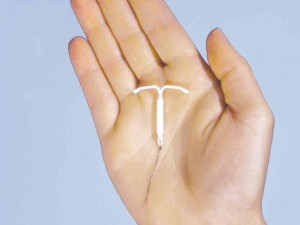Bellwether Cases to be Chosen for Mirena IUD Lawsuits in New Jersey
 Bellwether selection is underway in the coordination of Mirena IUD lawsuits in New Jersey State Court. Superior Court Judge Brian Martinotti, who oversees the multi-county litigation, has ordered parties involved in the coordination to select 14 cases to be prepared for a second round of early trials, known as bellwether trials.
Bellwether selection is underway in the coordination of Mirena IUD lawsuits in New Jersey State Court. Superior Court Judge Brian Martinotti, who oversees the multi-county litigation, has ordered parties involved in the coordination to select 14 cases to be prepared for a second round of early trials, known as bellwether trials.
First set of bellwether trials in motion
The first set of bellwether trials for this MCL have already been chosen and are scheduled to begin later this year. All of the plaintiffs in these cases allege that the Mirena IUD led to serious complications and injuries, including perforation of the uterus and migration of the device to other areas of the abdomen. Some women have suffered damage to other organs, like the bladder and intestines, while others claim the injuries caused by the Mirena left them unable to have children.
Although outcomes of bellwether lawsuits are not binding to other cases, they do provide significant information for both plaintiffs and defendants on how juries might respond to evidence and testimony presented in future lawsuits. Bellwether trials can also serve as the catalyst to settlement proceedings between the defendant and plaintiffs in the cases. The selection process was outlined in a March 17 case management order signed by Judge Martinotti.
According to the order, both plaintiffs and defendants will each select seven cases to serve as bellwether trials by July 2. Those 14 cases would then undergo case-specific discovery, which is slated to be completed by February 18, 2016. At that point, both parties will choose four cases with the intention of narrowing the pool to four cases total for the second bellwether trial. That trial is expected to begin in 2016, although the precise date has not yet been determined by the court
Mirena litigation
Currently, hundreds of Mirena IUD lawsuits are pending across the country. In addition to approximately 1,800 in the New Jersey Court, more than 1,000 federal cases have been coordinated into multidistrict litigation in U.S. District Court in New York. When all of those complaints are added to various lawsuits filed in individual courts around the country, the total number of lawsuits against Mirena manufacturer Bayer exceeds 3,000.
About the Mirena IUD
The Mirena IUD was approved for use in the U.S. by the FDA in 2000, and quickly rose to become one of the most popular methods of birth control in the country. According to Bayer, the device boasts a 99-percent effectiveness in preventing pregnancy for up to five years after it is placed in the uterus. However, some women have experienced migration of the device after placement, which can lead to perforation of the uterus and movement of the IUD to other areas of the abdomen.
Women that have filed lawsuits involving the Mirena IUD allege Bayer failed to provide proper warning about the risks associated with their device. Although the company states the IUD could migrate after placement, the assumption appears to be that any possible migration would occur shortly after the insertion procedure. However, some women have experienced Mirena migration many months after having the device implanted in their uterus, which has caused severe pain, bleeding and other side effects.
- U.S. District Court, Southern District of New York, In re: Mirena IUD Products Liability Litigation, http://www.nysd.uscourts.gov/mdl/13MD02434
- NCBI, The Wandering Mirena: Laparoscopic Retrieval, http://www.ncbi.nlm.nih.gov/pmc/articles/PMC3134688/
- FDA, Mirena (levonorgestrel-releasing intrauterine system) July 2008, http://www.fda.gov/Safety/MedWatch/SafetyInformation/Safety-RelatedDrugLabelingChanges/ucm121936.htm
- New Jersey Courts, Mirena, http://www.judiciary.state.nj.us/mass-tort/mirena/index.htm


 Resources
Resources
 Resources
Resources